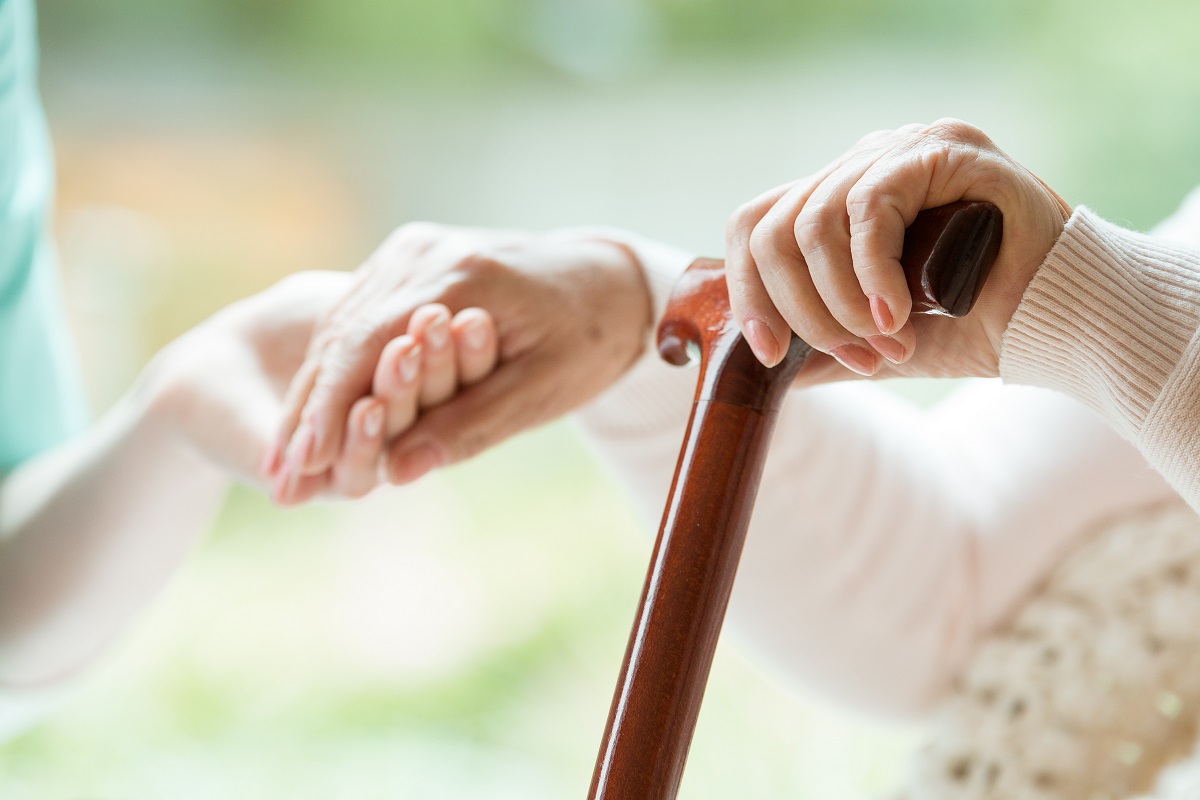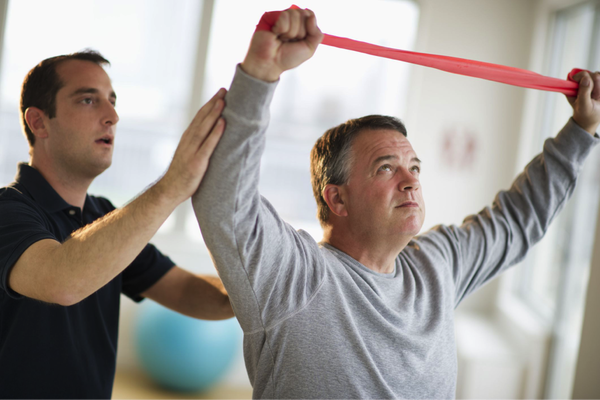Physical and mental decline are normal parts of the aging process. However, there comes a time in everyone’s life when they’re no longer able to care for themselves. Since this usually happens gradually, it can be hard to figure exactly when an elderly individual needs a caregiver.
At Alliance Homecare in New York, we’re dedicated to helping families make the best decisions for their loved ones. The choice to arrange for outside support isn’t always easy, but knowing the signs a senior needs help at home is a great place to start. It is important to keep in mind that the benefits of home care can be life-changing for you and your loved one.
How to Know If an Aging Adult Needs Home Care
If your partner, parent, family member, or another elderly loved one is becoming more feeble or forgetful with age, we recommend taking note of their behaviors and abilities. There are various signs to look out for that can tell you whether home care is a reasonable next step.
Functional Impairment
As we mentioned, some level of physical decline is to be expected. Slowing down with age isn’t necessarily a cause for concern, as long as the individual can tend to all their needs. With that said, certain functional impairments can prevent an older person from taking care of themselves. These basic functions can give you clues as to what self-care tasks your loved one can or can’t do on their own.
Clasp hands behind the head and back: If your loved one is unable to clasp their hands behind their head and back, they may not be able to bathe, get dressed, or tend to housework without support.
Stand up from a chair without using hands for support: When someone can’t go from a seated position to a standing position without using their hands, it may be a sign of musculoskeletal decline, which can be physically debilitating.
Stand on tiptoes for five seconds or longer: If your loved one is unable to remain on their tiptoes for at least five seconds, it could be a sign of poor balance, which can increase their risk of falls.
Pick up a penny off the floor: The ability to bend down from a standing position and pick up a coin from the floor indicates healthy vision, physical strength, and balance, all of which are crucial components of taking care of oneself.
When your loved one is unable to accomplish these exercises, it may be time to consider providing them with some in-home assistance to help them throughout their day. If they cannot accomplish these tasks due to degenerative diseases like Multiple Sclerosis (MS) or Amyotrophic Lateral Sclerosis (ALS), home care is an ideal solution so that they can receive professional care in the comfort of their preferred surroundings.
Declining Self-Care
Aside from observing functional impairments that may prevent your loved one from completing various self-care tasks, you might notice more obvious signs of declining personal care.
Signs of declining self-care might include:
- Wearing unwashed clothes or wearing the same thing several days in a row
- Unkempt or greasy hair
- Body odors
- Spoiled or long-expired food in the home
- Piled up dishes or laundry
- Garbage or recycling that hasn’t been taken out for weeks or months
- Shut-off utilities or final notices from creditors
Weight loss can also be a sign of declining self-care, as it might indicate they’re having trouble grocery shopping and cooking food.
Sensory and Cognitive Impairments
Certain sensory and cognitive impairments can tell you whether a senior needs help at home. While forgetfulness can occur at any age, a rapid or progressive decline in memory and cognitive ability is generally a cause for concern. The following exercises and tests can help you gauge how your loved one’s mind and sensory systems are functioning.
The whisper test: Think of a simple phrase such as “I’m hungry for lunch.” Standing behind your elderly loved one so they can’t read your lips, whisper the phrase. Are they able to understand it and repeat it back to you? If not, it could be a sign of hearing impairment, which is common among aging adults.
Reciting a routine: One way to check for memory decline is to ask your loved one to explain their medication routine or another daily routine to you out loud. If they can’t remember which prescriptions they take, how often they’re supposed to take them, or accurately recite the daily dose for each medication, it’s a cause for concern. While there are various methods for medication management and setting up reminders, this could be a sign a senior requires at-home assistance.
Emergency communication: Confirm your loved one has the phone number of at least one emergency contact readily accessible. Having the information memorized is ideal, but they should at least know where to find it at a moment’s notice.
The information gleaned from the above activities is critical for you, your loved one’s healthcare provider, and any other caregivers. Be sure to share your assessment results with a trusted professional. No matter the outcome, try to remain positive.
Signs of Irritability or Aggression
According to a report published in JAMA Internal Medicine, about 9% of Americans over 65 suffer from some form of dementia. The condition is a blanket term for severe memory decline and loss of thinking capacity that affects a person’s day-to-day functioning and ability to communicate.
Aside from Alzheimer’s disease (AD), dementia can manifest in a number of ways. This includes vascular dementia, Parkinson’s disease, dementia with Lewy bodies (DLB), mixed dementia, and Huntington’s disease. When a person experiences progressive cognitive decline with age, they might become irritable or aggressive out of frustration, confusion, or embarrassment about their condition.
The Alzheimer’s Society of Great Britain says that mood swings, paranoia, and combativeness can be signs of AD and other types of dementia. Aggression can be particularly dangerous for aging adults, as well as those around them. If your loved one is showing any of these behaviors, don’t hesitate to seek out medical support. Contact Alliance Homecare for more information on dementia care in New York services if your loved one may be in need of some at-home assistance.
Frequent Injuries
Frequent injuries can be a cause of functional impairment, cognitive decline, or both. In any case, it might mean your loved one is unable to stay safe while living on their own.
Falls tend to be the most common type of accident among aging adults. They can result in emergency room visits, broken bones, bruising, wounds, and chronic soreness.
Increasing Medical Needs
Increasing medical needs can also be a sign a senior requires at-home medical care. Whether it’s a chronic illness, frequent injuries, a progressive disease, increased medications, mechanical ventilation, IV care, cardiac support, or pulmonary care, it’s a good idea to have a professional there to ensure their needs are met. When looking at in home care vs nursing home care, we believe that in home care has countless benefits.
Loneliness and Isolation
Companionship is a critical part of a person’s overall health, no matter their age. Sadly, social isolation is common among seniors. When they leave the workforce, lose touch with friends, experience the loss of a loved one, or are unable to venture out of their home like they used to, the impact of social isolation can be detrimental to their health.
Family members can fill some of the void, but they may not live close by or be available to engage every day. If you fear your loved one is socially isolated or chronically lonely, in-home companion care can make a world of difference.
What Are the Next Steps?
Upon identifying some or all of the signs a senior needs help at home, it’s time to take the first steps in arranging care. Be sure to include other close family members in the process, as they can help you approach your aging relative and figure out your options.
When starting the conversation, we recommend first discussing the level of care your loved one needs. Do they need support with self-care daily tasks, medication management, in home nurse care, or companionship? You may initially opt for in-home respite care in New York City as the first step (read more on what is in-home respite care?).
Then, evaluate your caregiving availability and how much supplemental care you’ll need, such as does the care require a private nurse or will New York home health aide services suffice. Additionally, you should discuss care expenses, as well as your loved one’s personal preferences and medical wishes. If you’re not sure how to approach the issue of home care, it might be helpful to seek out an expert’s advice.
In-Home Care in New York City
At Alliance Homecare, we have a first-hand understanding of the importance of quality home care. The ability to remain in the comfort of their own home for as long as possible is crucial for many clients. It allows them to maintain a level of privacy, independence, and dignity while still receiving the care they need.
Our skilled and compassionate staff can keep your loved one safe at home while assisting with self-care tasks, medical support, and healthcare as needed. You can arrange for as much or as little care as you need and adjust if necessary.
Our NYC home health care team at Alliance Homecare is available 24 hours a day, seven days a week, and we’d love to hear from you. Contact us to learn more about our flexible home care services in New York City.
External sources:
- https://www.alzheimers.org.uk/about-dementia/types-dementia/symptoms-vascular-dementia
- https://www.ncbi.nlm.nih.gov/pmc/articles/PMC4270052/
- https://www.nia.nih.gov/health/aging-place-growing-older-home
- https://www.sciencedirect.com/science/article/pii/S2095771815300013
- https://www.ncbi.nlm.nih.gov/pmc/articles/PMC259166/
- https://jamanetwork.com/journals/jamainternalmedicine/article-abstract/2587084





